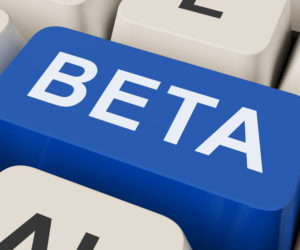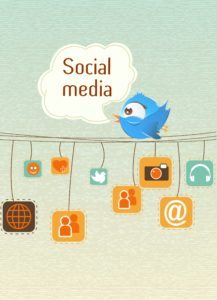Quick links, bringing you great articles on writing from all over the web.
posting at Jane Friedman, shares her experiences and costs of hiring a publicist. As an indie author, you should be willing to spend a little money on a great cover and a great editor, but is it worth it to spend more money on a publicist? What have your experiences been?
~ * ~
Should You Pay for a Publicist?
 You’ve written a great book and—if you’ve self-published—probably shelled out for the services of a good editor and cover designer. The last thing you want is to pay for a publicist. But in a sea of authors, how will potential readers know about your book?As a traditional-turned-hybrid author publishing with She Writes Press, I foot the bill for all the publishing costs but reap a much higher percentage of royalties for both print and ebook sales for my debut memoir, Accidental Soldier: A Memoir of Service and Sacrifice in the Israel Defense Forces. My book is distributed like a traditional one, in all the retail channels; distribution is a major challenge facing self-pubbed authors, and traditional distribution is an advantage of my particular press.
You’ve written a great book and—if you’ve self-published—probably shelled out for the services of a good editor and cover designer. The last thing you want is to pay for a publicist. But in a sea of authors, how will potential readers know about your book?As a traditional-turned-hybrid author publishing with She Writes Press, I foot the bill for all the publishing costs but reap a much higher percentage of royalties for both print and ebook sales for my debut memoir, Accidental Soldier: A Memoir of Service and Sacrifice in the Israel Defense Forces. My book is distributed like a traditional one, in all the retail channels; distribution is a major challenge facing self-pubbed authors, and traditional distribution is an advantage of my particular press.
I invested in a publicist to break into mainstream media, which led me to identify a number of online and print women’s media sites that would be perfect for my coming-of-age memoir and mother-daughter story. Of course I could have tried approaching these editors on my own, but that would have been time-consuming, and I didn’t have the established and nurtured contacts. Accidental Soldier has been featured with The Reading Room, Brit + Co, Writer’s Digest, Reader’s Digest, SheKnows.com, Working Mother magazine, Teen Vogue, and Seventeen—and that’s just a few. I would have never gotten that far on my own.
However, good publicists are not cheap. They command higher payment than a quality editor because they spend more hours over a longer time period working for you and your book.

 by Shelly Hitz
by Shelly Hitz Part of the Indie Author Series
Part of the Indie Author Series Today’s guest post is by top Amazon reviewer Gisela Hausmann. This content originally ran on the Huffington Post, and it is reprinted here with her permission.
Today’s guest post is by top Amazon reviewer Gisela Hausmann. This content originally ran on the Huffington Post, and it is reprinted here with her permission. Posted on
Posted on  There are many places where readers can find and download e-books. There are a number of online retailers such as Amazon, Barnes and Noble and Kobo that sell them directly. Your local library likely has a robust digital collection or sometimes piracy is just a click away. Good e-Reader has been running a poll for the past three weeks where we asked the question “where do you get your e-books from?” Over 827 people responded and we now have some fairly comprehensive data.
There are many places where readers can find and download e-books. There are a number of online retailers such as Amazon, Barnes and Noble and Kobo that sell them directly. Your local library likely has a robust digital collection or sometimes piracy is just a click away. Good e-Reader has been running a poll for the past three weeks where we asked the question “where do you get your e-books from?” Over 827 people responded and we now have some fairly comprehensive data. July 10, 2016
July 10, 2016 Hello again, lovely friends! I’m so happy you’re here because I am super pumped to talk about today’s topic.
Hello again, lovely friends! I’m so happy you’re here because I am super pumped to talk about today’s topic. About three years ago, then-VP, Digital Content and GM of Barnes and Noble’s Nook Press division Theresa Horner sat down with GoodEReader at the Frankfurt Book Fair to discuss the state of the company, namely its self-publishing option and its ebook self-publishing platform. She posed the question as to what it would take to effectively compete with Amazon. Our response–which was not at all tongue in cheek–was for the retailer to stop banning indie authors’ books from brick-and-mortar stores. If Nook Press had developed a viable print-on-demand option and then told authors there was even a possibility of seeing their titles in their local bookstore on the condition that they pulled their books from Amazon’s exclusive KDP Select program, authors would have jumped at the chance.
About three years ago, then-VP, Digital Content and GM of Barnes and Noble’s Nook Press division Theresa Horner sat down with GoodEReader at the Frankfurt Book Fair to discuss the state of the company, namely its self-publishing option and its ebook self-publishing platform. She posed the question as to what it would take to effectively compete with Amazon. Our response–which was not at all tongue in cheek–was for the retailer to stop banning indie authors’ books from brick-and-mortar stores. If Nook Press had developed a viable print-on-demand option and then told authors there was even a possibility of seeing their titles in their local bookstore on the condition that they pulled their books from Amazon’s exclusive KDP Select program, authors would have jumped at the chance.



 “Which one social media channel will net me the most book sales?” an author asked me recently during my new weekly #BookMarketingChat (join any Wednesday on Twitter, 6pm pst/9pm est simply by typing in the hashtag).
“Which one social media channel will net me the most book sales?” an author asked me recently during my new weekly #BookMarketingChat (join any Wednesday on Twitter, 6pm pst/9pm est simply by typing in the hashtag).